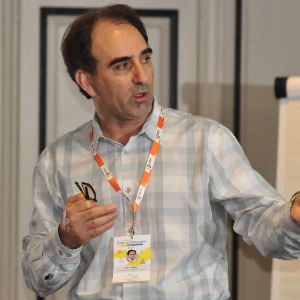Title : Mutant Profilin1 transgenic mice recapitulate cardinal features of motor neuron disease
Abstract:
Mutations in profilin1 (PFN1) have been shown to cause Amyotrophic Lateral Sclerosis (ALS) in human patients, however the molecular mechanisms responsible for this effect are unknown. To study profilin1 neurotoxicity and the mechanism of neurodegeneration, transgenic mice overexpressing mutant PFN1 could be highly advantageous. Therefore, recently we developed a much-needed novel mouse model for the neurodegenerative disease, ALS. These mice were generated by introducing a human mutant form of the actin-binding protein, PFN1. We utilized one of the characterized ALS-linked mutations in profilin1 (PFN1G118V) to generate transgenic mice which exhibit ALS pathology and phenotype (Fil et al., 2017). In an effort to understand the underlying mechanisms of PFN1G118V toxicity, we conducted a mass spectrometry analysis on the spinal cords of WT transgenic mice (PFN1WT) and mutant profilin1 mice (PFN1G118V). The mass spectrometry data revealed several promising proteins which could play a role in mediating the neurotoxic effects of PFN1G118V. We will present our newly-developed ALS mouse model (PFN1G118V mice) and proteomic analyses to elucidate proteins involved in the ALS-causing mechanism of mutant profilin1. We show several promising proteins which, with further validation, may prove to play a role in the pathology of this neurodegenerative disease.
Audience take away:
• Mouse model development for neurodegenerative disease. A specific example of the new mouse model for motor neuron disease (PFN1G118V transgenic mouse model for Motor neuron disease)
• How to investigate to determine the mechanism of mutant protein causing neurodegeneration, e.g. profilin1 mutant toxicity.
• The value of proteomic as a tool in identifying molecules involved and novel target to investigate and therapeutic strategy development. • will be able to acquire this new mouse model and apply the methodology of developing model for neurodegenerative diseases.




